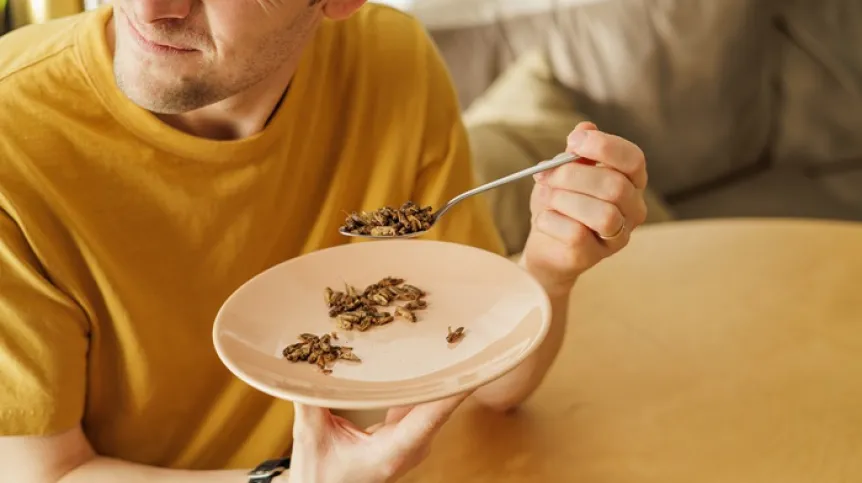
Insects may contain bioactive compounds that are not produced by the human body, says Radosław Bogusz from WULS-SGGW, who specialises in the quality of food produced from insects. He adds that insects are currently perceived negatively in Poland - 'as a potential threat, not a source of food'.
In early 2023, the European Union issued decisions on expanding the list of insects and products derived from insects for human consumption. Already in 2021, the European Union Agency for Food Safety recognized dried mealworm larvae as completely safe for consumption, migratory locusts were later added to the list, and house crickets were added in February 2023.
Radosław Bogusz, a doctoral candidate at the Warsaw University of Life Sciences (WULS-SGGW) Doctoral School and the Institute of Food Sciences, conducts research on the quality of food produced from insects. According to the researcher, EU decisions regarding the expansion of the list of insects and products derived from insects for human consumption were accompanied by a negative narrative in Poland, 'which only exacerbated Poles' fears of including insects in their daily diet.’
Meanwhile, according to the scientist quoted on the WULS-SGGW website, 'insects can be a sustainable, alternative source of protein and fat in our diet'. Additionally, as he emphasises, 'we should not forget about bioactive compounds, which are mainly associated with fruits and vegetables, and may also be present in insects.’
'Bioactive compounds are not produced by the human body, so they must be supplied with food,’ says Bogusz. 'Their role, for example, is to protect cells and tissues against the adverse effects of free radicals, which contribute to the development of various diseases and significantly accelerate the skin ageing process.’
In his opinion, interest in products based on edible insects is relatively low, which is influenced by cultural factors.
'Insects are generally perceived negatively, they are associated more with a potential threat than a source of food in our daily diet,’ the scientist says. Therefore, in his opinion, 'the challenge is to make insects more acceptable to consumers.
'This is possible by introducing them into the recipes of commonly known and liked products in a ground form, or enriching such products with given ingredients, such as proteins or the previously mentioned bioactive compounds.’
He adds that 'before such an ingredient can be used in food production, numerous studies are needed. Regardless of whether it is insect-based food or traditional food, it must meet a number of requirements related to safety and quality. In short, all food must be safe.’
Only then 'should it meet the expectations of today's consumers,’ says the researcher. ’Meeting these requirements is possible thanks to various laboratory analyses, including tests regarding microbiological quality and nutritional value.’
Bogusz conducts research as part of a research internship financed by the WULS-SGGW Own Scholarship Fund. He studied insects, for example, at the İzmir Institute of Technology in Turkey.
Insects are considered novel foods, which can only be marketed in the EU if they obtain appropriate approvals from the European Commission and are included in the EU list of approved novel foods. The labelling of food with insects is determined by EU regulations stating that information about their presence must be included on the product packaging. The practice of eating insects is called entomophagy. It is still an unexplored culinary direction in Poland and Europe.
PAP - Science in Poland
amk/ zan/ kap/
tr. RL













